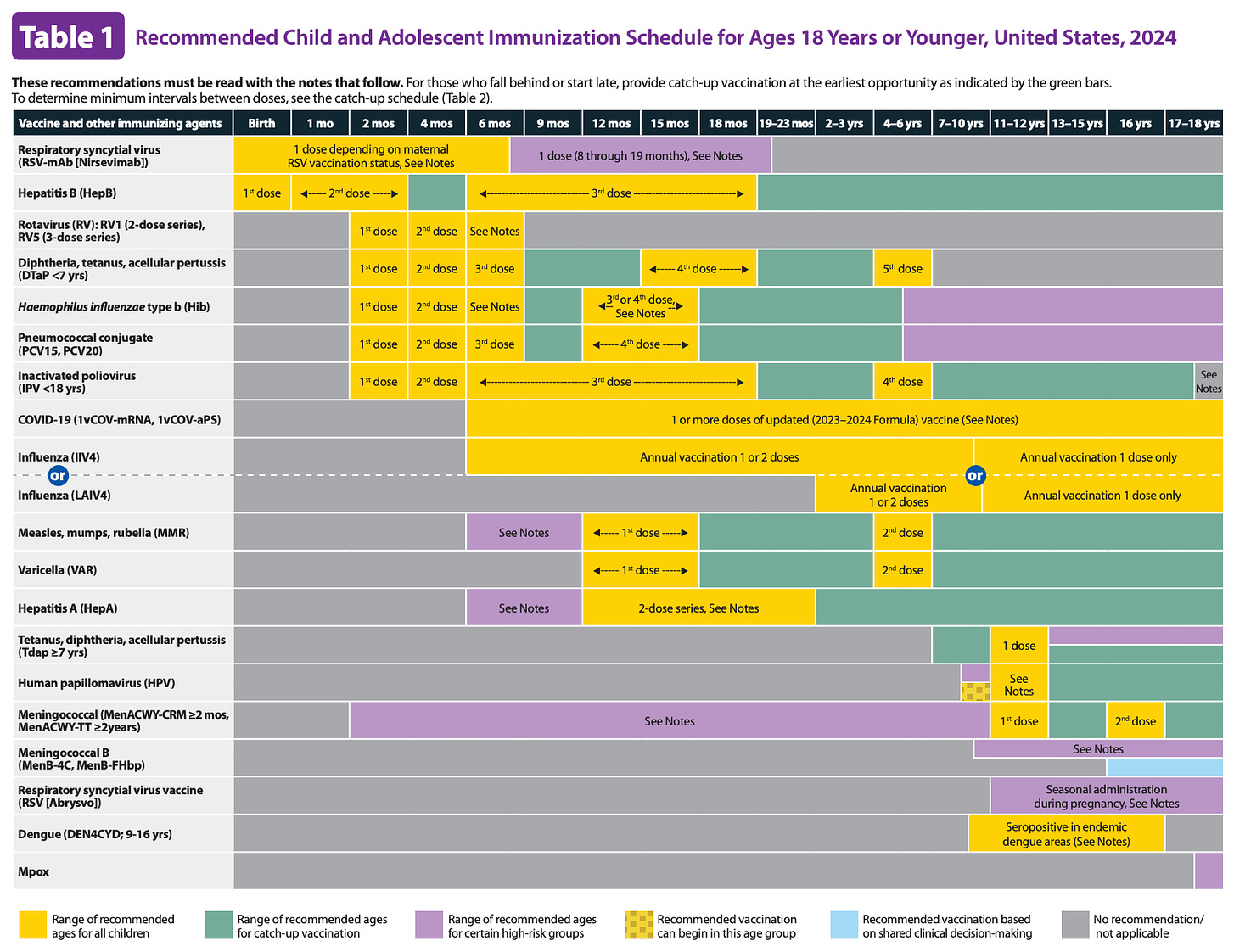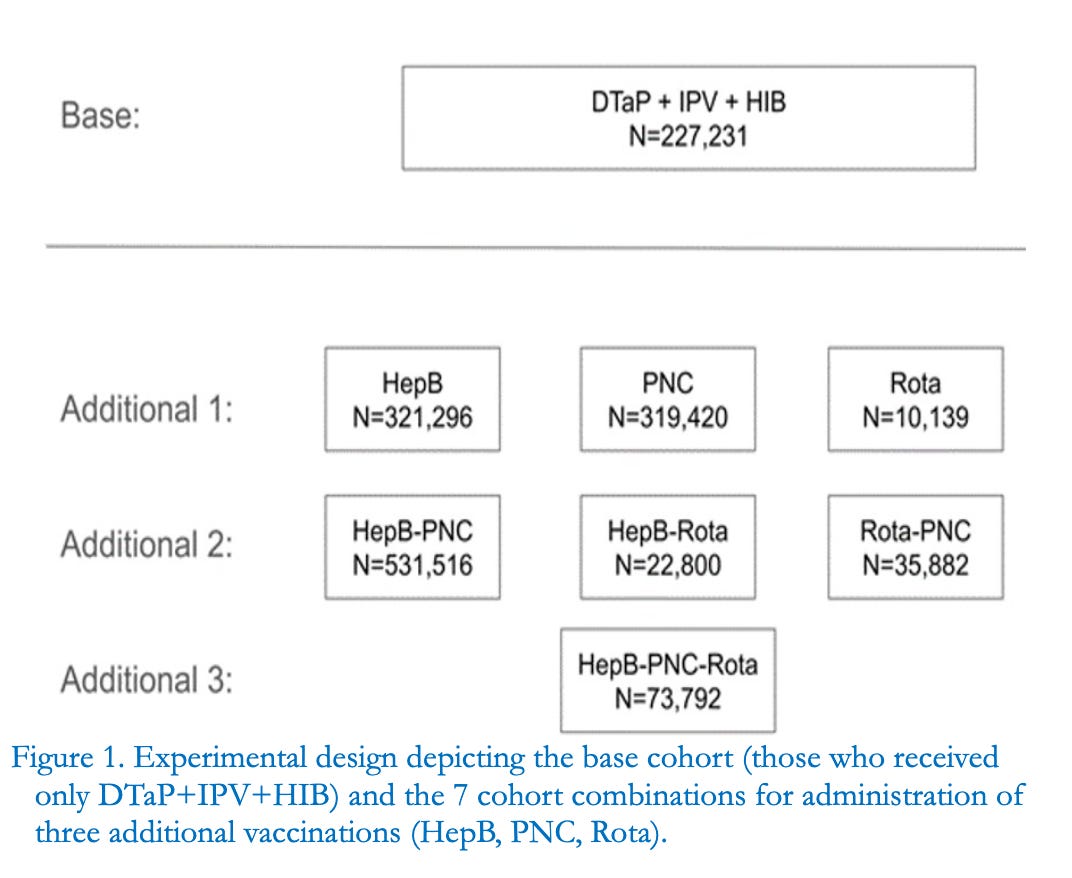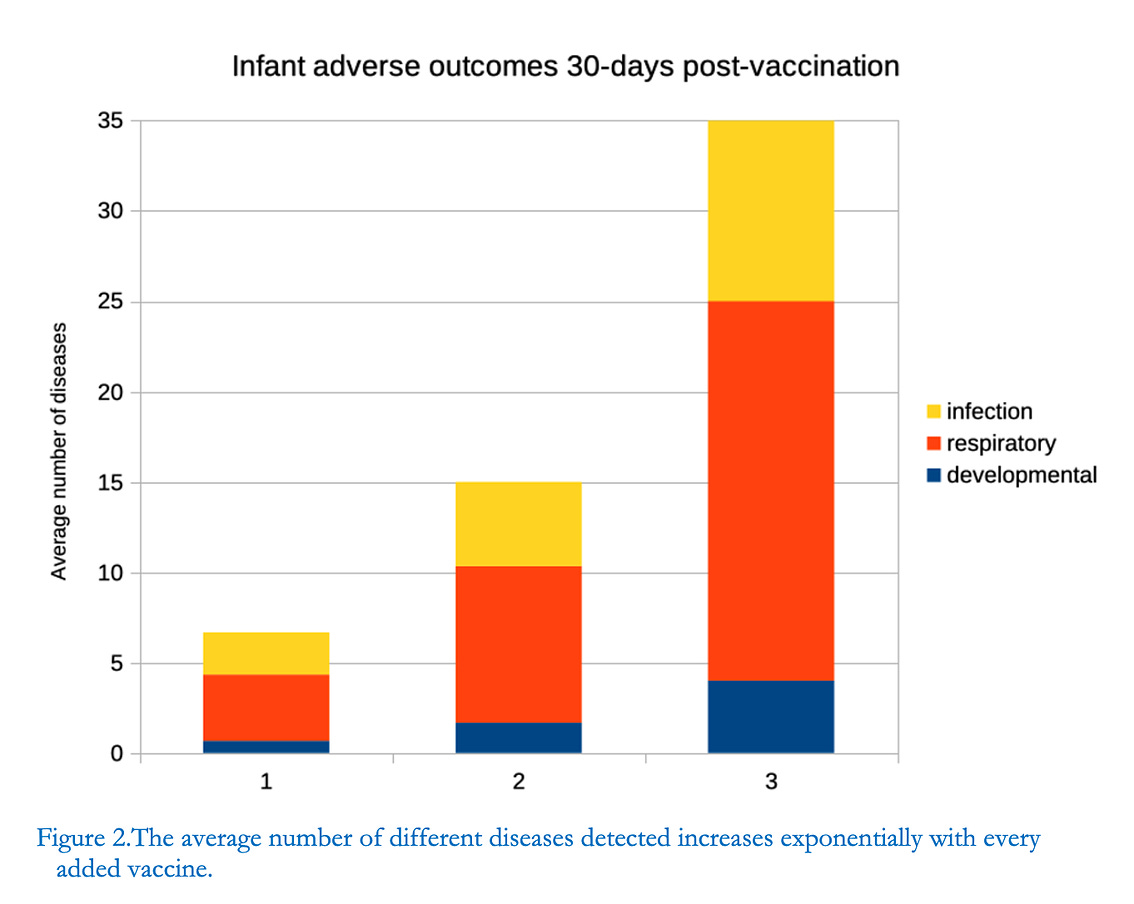|
Diseases Increase 'Exponentially' With Each Added Vaccine Given to Babies
A first-of-its-kind study blew the lid off the infant vaccination schedule.
If you’ve had a child or are considering having one, then you’re not going to escape the reality that you will be expected by U.S. health agencies to give your child enough vaccines to sink a ship even though simultaneously administering multiple shots of different vaccines to infants has never been proven safe.
This is the CDC’s Big pHarma’s suggested and sometimes mandated “immunization” schedule, which recommends that you take your child in to receive as many as nine shots loaded with heavy metals and 12 different antigens designed to provoke an immune response.
Drs. Karl Jablonowski and Brian Hooker decided to do what no U.S. health agency—with its billions of dollars—has ever done or will ever do: They got their hands on some data from the good state of Florida and found that each additional vaccine “exponentially” increased respiratory, developmental, and infectious diseases in infants.
In other words, they found that the more vaccines an infant received, the more health problems they had.
The study, published June 2024 in the International Journal of Vaccine Theory, Practice, and Research (IJVTPR), evaluated 1,542,076 vaccine combinations administered to infants younger than one between July 1, 1991, and May 31, 2011.
The goal was to assess adverse outcomes linked to vaccine combinations and to identify any negative trends related to the increasing number of vaccines administered simultaneously.
To perform the study, Drs. Karl Jablonowski Brian Hooker examined a database of more than 460 million diagnosis claims from Florida’s Medicaid database from over 10 million individuals over the same period.
The control group included 227,231 infants who received only diphtheria, tetanus, and pertussis vaccines (DTaP), polio (IPV), and Haemophilus influenza type b (HIB) vaccines.
The researchers then compared the adverse outcomes in the control group to seven groups of children who received the same vaccines as the control group in addition to other vaccine combinations.
In other words, they didn’t compare the vaccinated to the unvaccinated, they compared children who received fewer vaccines to children who received more vaccines or different combinations of vaccines.
The image below from the study shows how many infants were in each cohort and which vaccines they received.
The results were alarming—yet not surprising. The more vaccines a child received, the more likely they were to have been diagnosed with a disease…or several.
Of 45 different diagnoses, the most recurrent conditions were respiratory diseases. Acute bronchiolitis from infectious organisms, acute upper respiratory infection, and obstructive chronic bronchitis with acute bronchitis appeared as an elevated risk in five different vaccine combinations.
Researchers found infants who received DTaP, IPV, HIB, and Prevnar (PNC) vaccines were 2,433% more likely to be diagnosed with obstructive chronic bronchitis with acute bronchitis within 30 days of vaccination than an infant who only received DTaP, IPV, and HIB—which is a little ironic since several of these vaccines are supposed to prevent specific respiratory diseases.
Infants who received all three vaccines (PNC, Heb P, Rotavirus) in addition to the vaccines the control group received were 3,041% more likely to be diagnosed with “other diseases of trachea and bronchus” within 30 days post-vaccination compared to infants who only received DTaP, IPV, and HIB.
The highest developmental risk was "failure to thrive" in infants receiving three additional vaccines, and the highest infection risk was leukocytosis in infants receiving Hep B and Rotavirus vaccines in addition to the base vaccines.
The study found that more vaccines resulted in more diagnoses within 30 days of vaccination. One additional vaccine led to an average of seven extra diseases, two vaccines to 15, and three vaccines to 35 additional diseases.
If these are the results up to 2011, can you imagine how much worse the results would be if the study was done with data from today and we considered the addition of COVID-19, RSV, Hep A, and (sometimes) meningococcal vaccines for infants?
You’re currently a free subscriber to Megan Redshaw's Substack. Upgrade your subscription to get the full experience and support Megan’s work.



